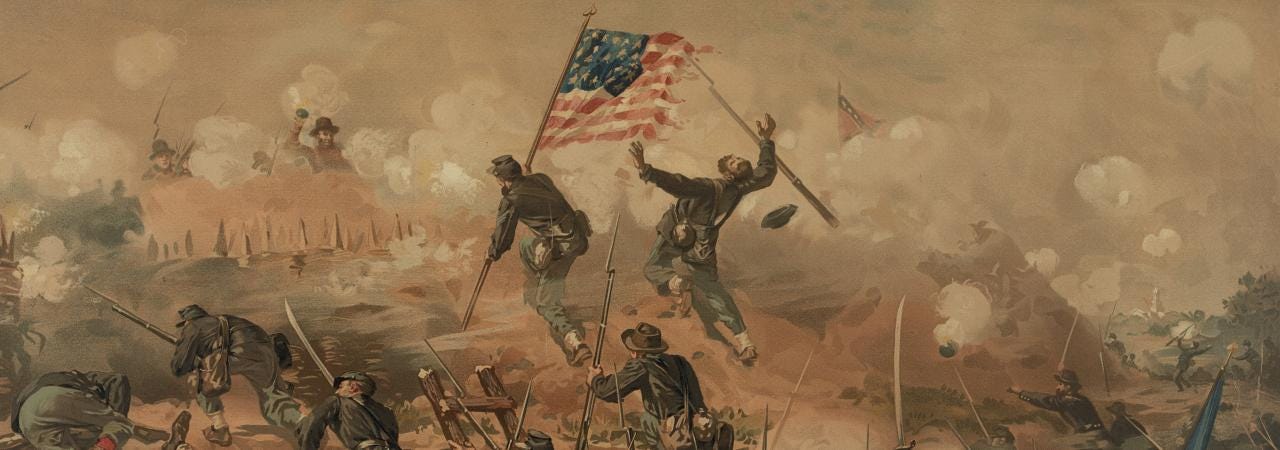
OK, so I decided to play around a bit with the new social media platform Threads. I am sure I will come to regret it, but one of the things I am enjoying is the opportunity to reconnect with some of my historian friends from Twitter. I am also enjoying the window that it provides into how people talk about and understand the history and legacy of the Civil War.
Earlier today I came across a posting by George Takei, who is a prolific user of social media and an important voice in today’s cultural and political milieu. It’s not a particularly insightful posting, but it does, unfortunately, reflect the often tongue-in-cheek way in which many people think about the Civil War.
Again, this may seem innocent enough. Takei was attempting to make a point about the long and painful history of the politics of white supremacy and racism, but it obscures something salient about the history of the Civil War.
The Confederacy was established to protect and expand the institution of slavery.
Failing to acknowledge its defeat or suggesting that it somehow “never really disappeared” moves us further from acknowledging the Black and white United States soldiers who sacrificed to bring the Confederacy to its knees in the spring of 1865. Just as importantly, it minimizes the importance that roughly 4 million formerly enslaved men, women, and children attached to the Confederacy’s defeat. They understood that the defeat of the Confederacy mattered as did the vast majority of the loyal citizenry of the United States, who celebrated a reunited nation.
Every American, regardless of their race and politics, should celebrate Confederate defeat in 1865 and, as a result, the end of slavery. Perhaps we will one day get there through the celebration of Juneteenth.
It has become all too common to reduce the past to a point where change is impossible to acknowledge. The defeat of the Confederacy certainly didn’t solve the problem of racism, but neither did it create it. Racism and white supremacy had long preceded its birth in February 1861 as did slavery going back to the early seventeenth century.
If you are having trouble acknowledging the complete defeat of the Confederacy and everything it hoped to achieve, just try to imagine for a moment how the history of this nation and the history of slavery would have been different had the Confederacy achieved its victory?
Yes, the Confederacy really did disappear and with it the institution of slavery never to return.
Let’s never lose sight of this fact.
[FYI, you can find me on Threads @kevinm.levin]





100%. To say that it didn’t disappear trivializes the war. It did disappear. Gone. White supremacy however, lived on. Did you reply this thought to George? Interested in his take.
These type comments, while I understand where they are coming from, are getting increasingly more frustrating to me lately. I wish there was a better way to address things like this so it’s less painful for both sides. Any time I push back on social media I get labeled a troll as well. The other day I was even told I was perpetuating the “happy slave” myth when I said former enslaved people celebrated the 4th of July during Reconstruction. 🤷🏻♀️🤷🏻♀️🤷🏻♀️